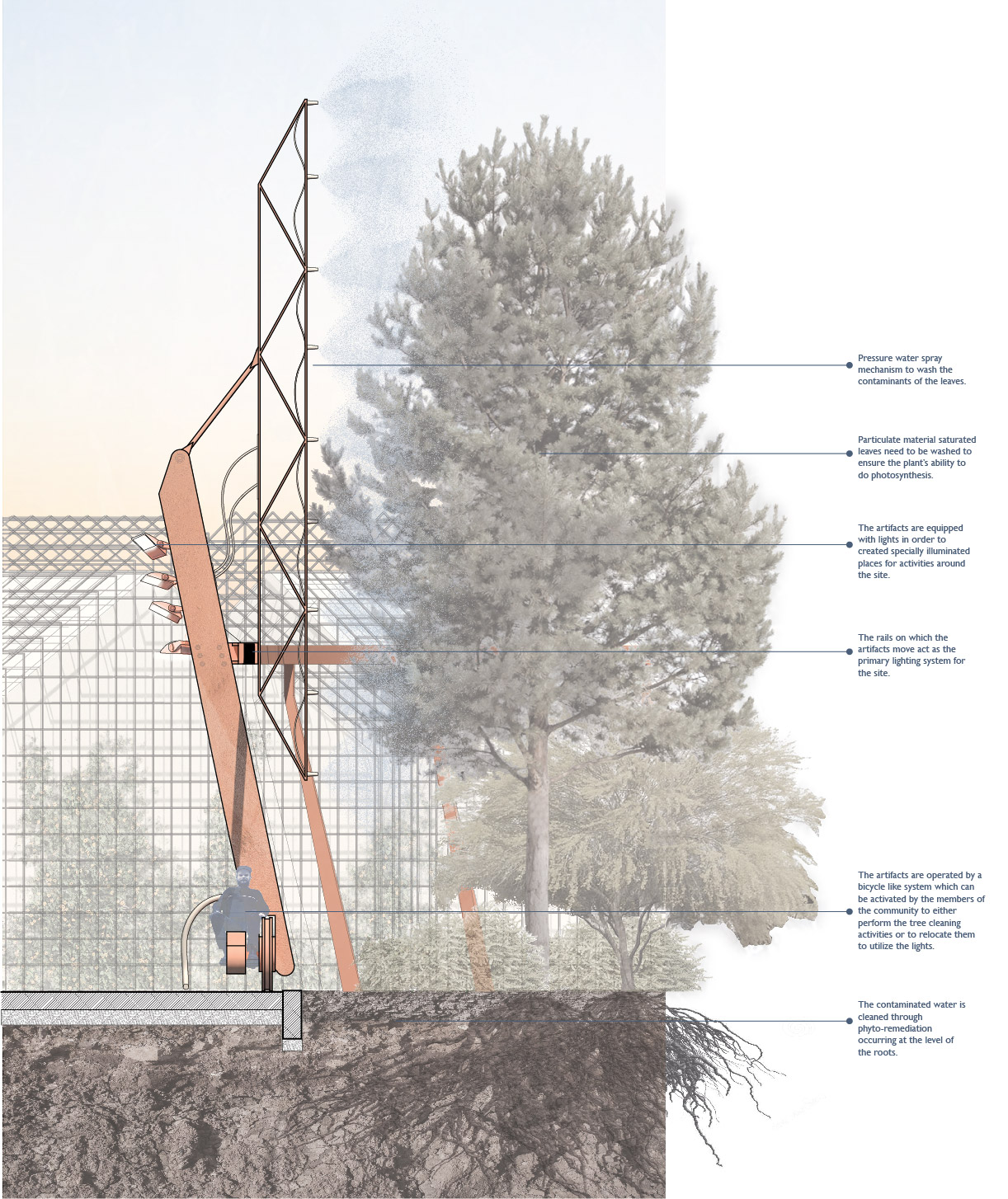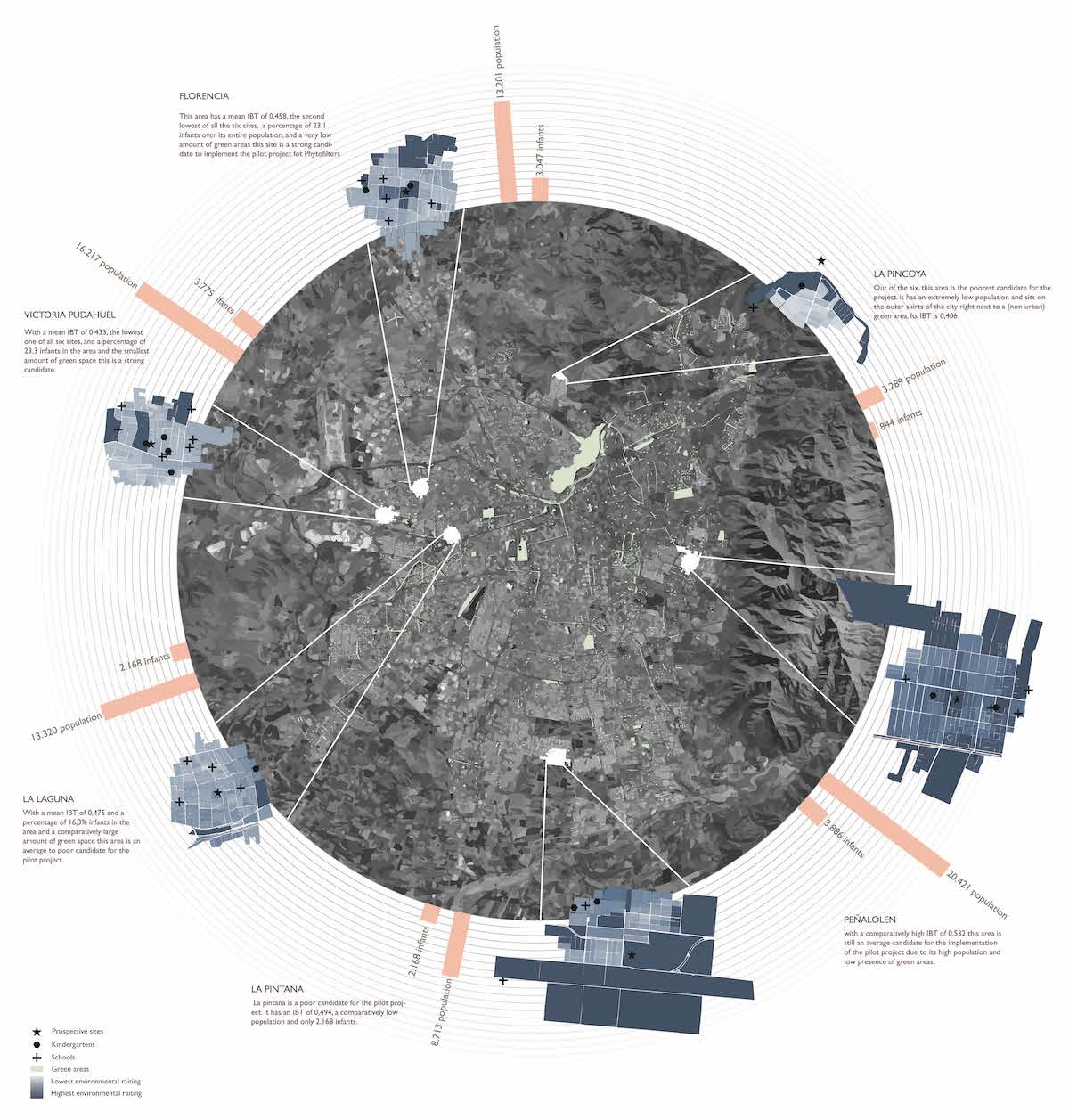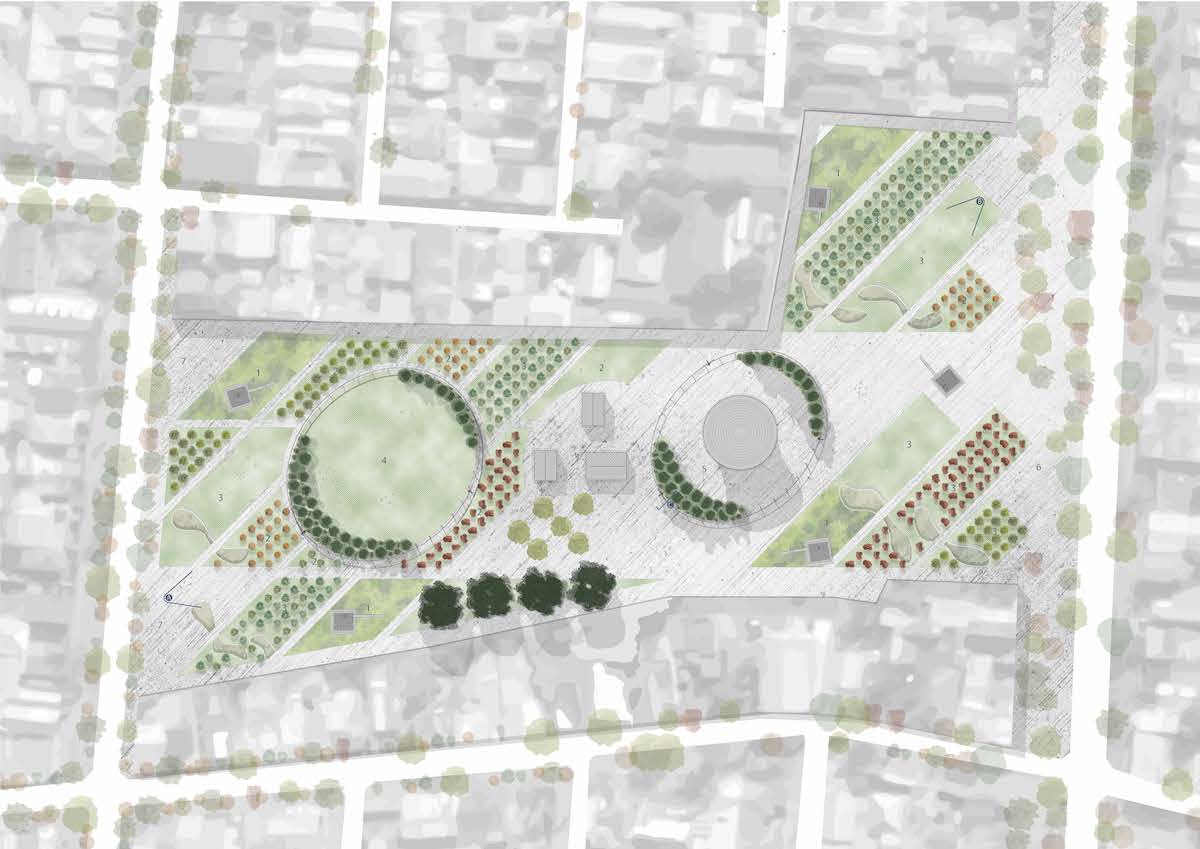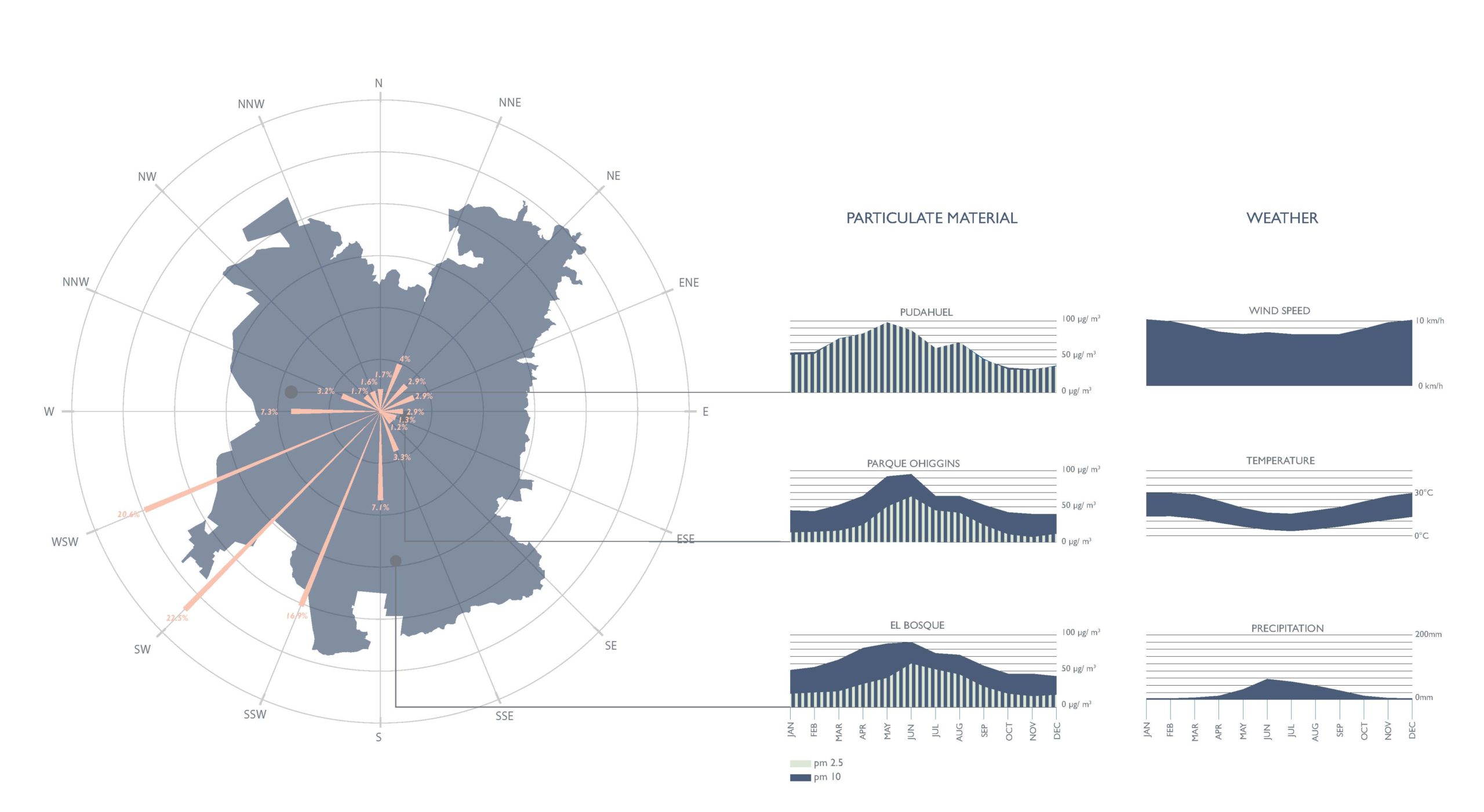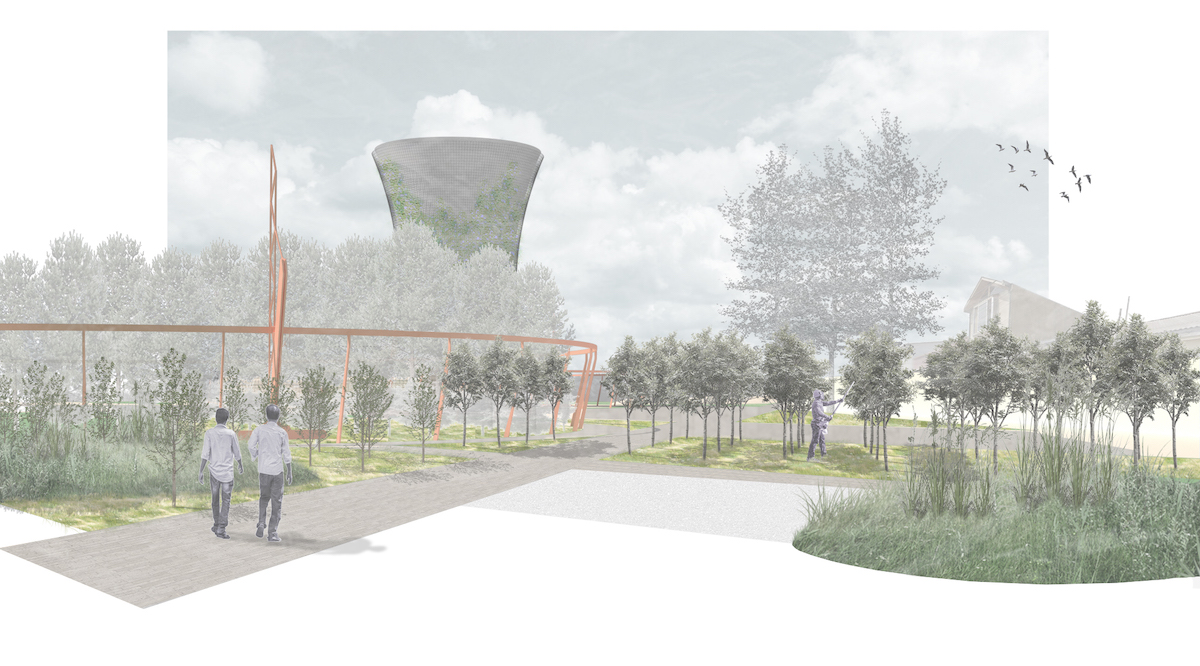Ecological Machines
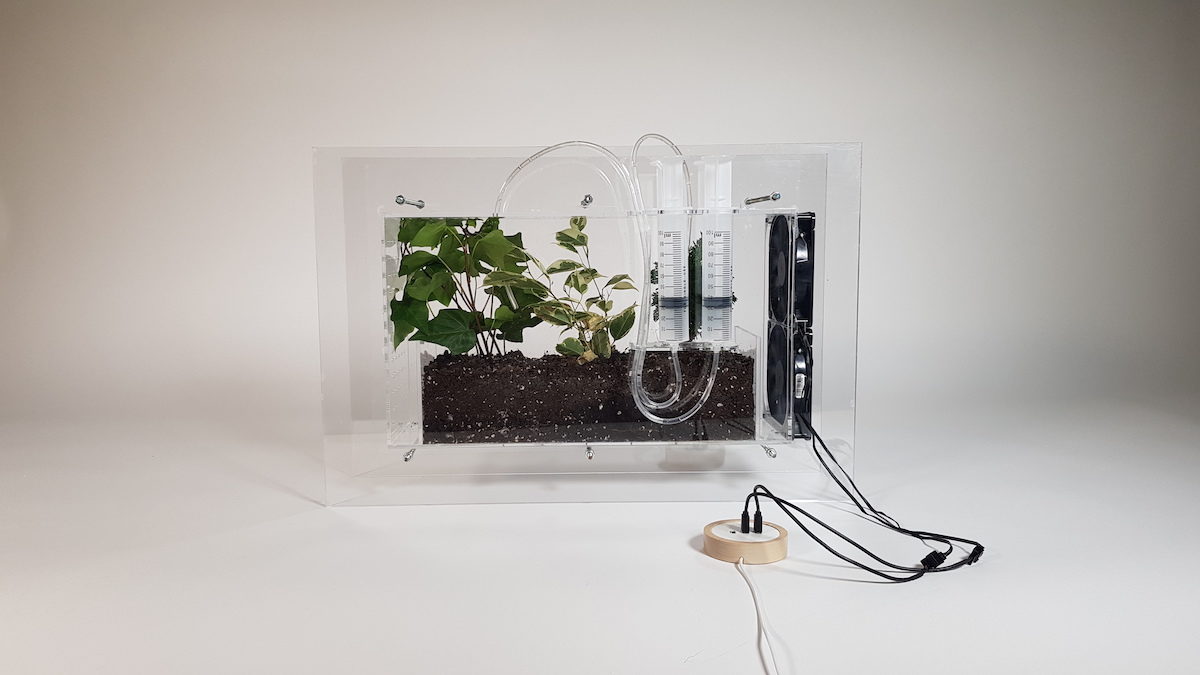
By Simon Escabi Santos (MLA 1 AP ’20)
The city of Santiago, Chile, is located on a low point on the skirts of the Andes mountain range. This basin situation, which results in a lack of wind currents during most of the year coupled with a low precipitation average, produces the prefect conditions for a high count of air pollutants.
This project aims to improve local air quality in low income neighborhoods in Santiago through the coupling of long term and short-term strategies. It consists of a community operated urban tree nursery that will slowly populate the streets and parks surrounding the project site, as well as protected play and leisure areas maintained through a system of Phyto-filtering. As a result, the area is transformed into a new public space for the neighborhood.
In the urban tree nursery, the trees will go through three stages before being dispatched to their final location along the streets or parks of the neighborhood. First, an initial seed germination, which happens in special containers. Next, the plant will be moved to a small part of the plot until it attains the stage of sapling and from there it will be moved to the larger part of the plot where it will grow until it attains a DBH (diameter at breast height) of 18 to 20 cm. At this point the tree can be relocated to its final location. This creates a pattern of crop rotation that will constantly transform the park.
The second strategy, Phyto-filtering, is based on several studies that have addressed the topic of the capacity of certain trees to retain large amounts of particulate material. The Phyto-filtering strategy proposes to plant the most efficient species for particulate matter capture, using the planting patterns of traditional windbreaks. These will create protected spaces of different characteristics that will provide a variety of activities with cleaner air.

